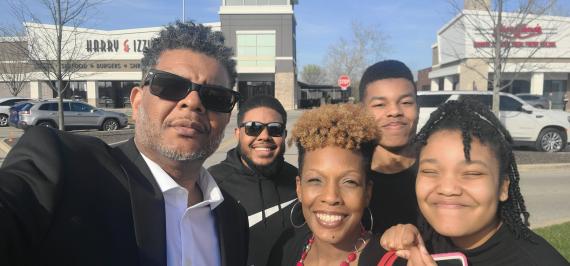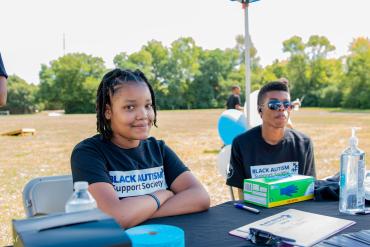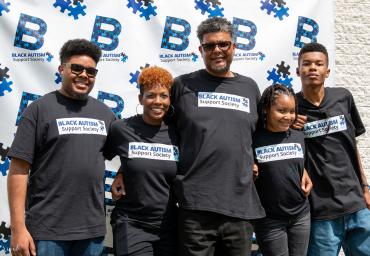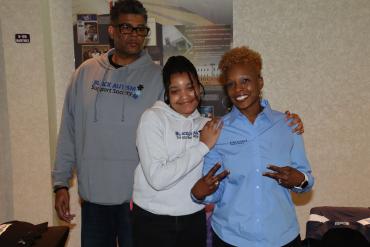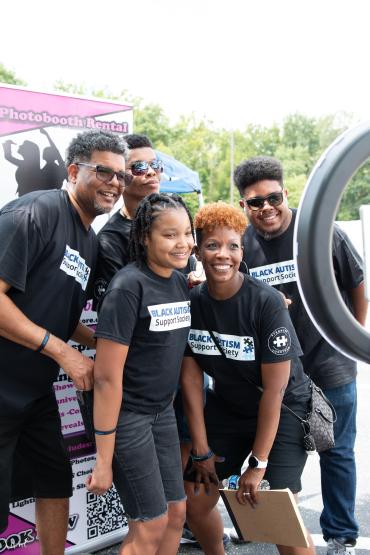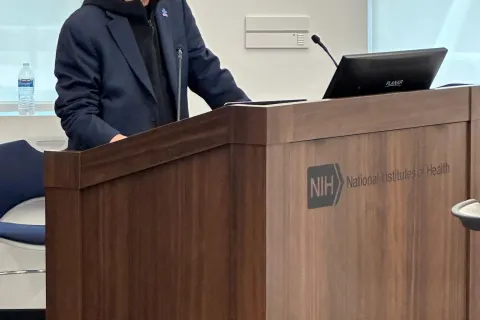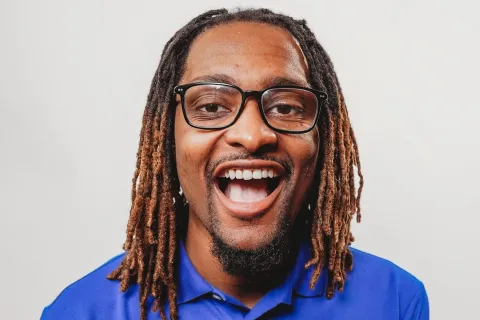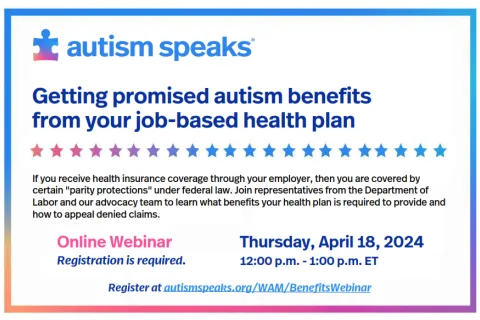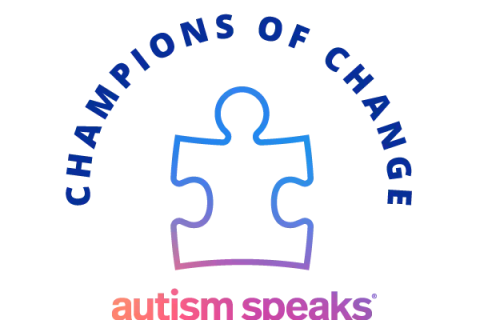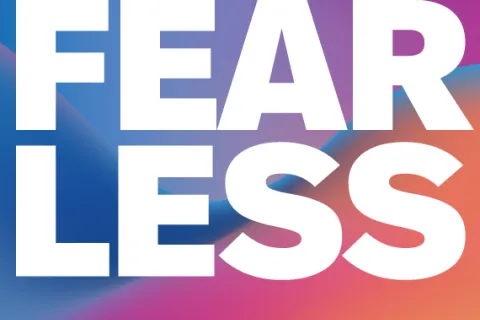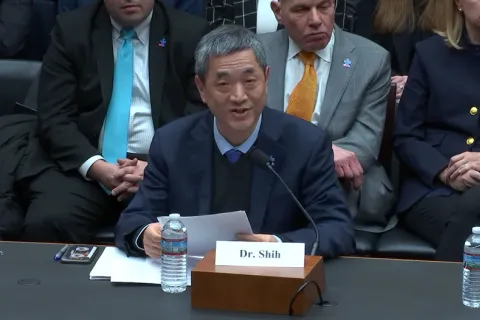Meet Kimacka R.
Kimacka R., empowering Black autism communities to break down barriers
My hope is that they are given the opportunity to be great, are surrounded by real friends, and never question that they are amazing and that they matter.
Meet Kimacka from Indiana: As a parent to three children with autism, Kimacka is a dedicated autism advocate. In this Q&A, Kimacka shares how her family's lived experiences shaped her perspective on autism, especially on the intersection of autism and race. She reminds us to embrace the diversity of autism and calls on policymakers to pursue "intentional legislation that provides program access to underserved communities." Kimacka serves as a model leader on how to expand one's knowledge and influence, build relationships, and sustain hope through investing in communities.
Learn more about Kimacka and her family in this Q&A:
Can you tell us a bit about you and your family’s autism journey?
My husband Kadell and I have three children, all of which have been diagnosed with autism. My oldest son Kadell Jr. was diagnosed late. We noticed he was not talking like other 3 year-olds his age. However, when we shared our concerns with his pediatrician, we were assured that boys sometimes begin talking later than girls and were advised to wait and see. After a while, we were referred to general speech therapy. We did not realize that would be our first encounter with the healthcare disparities that contribute to delayed diagnosis in the black community. Kadell Jr would eventually obtain a diagnosis in 1st grade after his teacher suggested he repeat the grade. We had never heard of the word autism and had no idea how it would become such a huge part of our family dynamic. Our younger son, Kyran, was diagnosed when he was around 2 ½ years-old. By then we were a little more aware and were looking for the signs. Our youngest and only daughter, Kimaya, started to receive developmental services when she was 10 months-old and had 4 therapists by the time she turned two. With autism impacting all of our children we have learned to find joy in being who we are.
What resources and services have helped your children? What are your hopes for their future?
Early intervention proved to be key for our younger two kiddos. Here in Indiana First Steps offers services for children ages three and under. In addition, we have been really fortunate to be in a school district that truly partnered with us in not only helping our children navigate through the education system, but also in discovering their gifts and talents. Other resources include psychotherapy and respite care service providers. Kadell Jr (now age 24) wishes to continue his music career and hopes to expand into producing music and sound engineering. Kyran (now age 19) hopes to start working in the technology industry. Kimaya (now age 13) has dreams of becoming a film producer and writer. They all hope to have lives full of love and purpose. My hope is that they are given the opportunity to be great, are surrounded by real friends, and never question that they are amazing and that they matter.
Can you tell us why advocating for reducing disparities in access to services is important and what motivated you to start the Black Autism Support Society?
In our autism journey, we discovered that our experience was different from our white counterparts. We had to advocate a little harder for diagnoses, services, and grace when it came to any behavioral concerns. We also noticed during IEP conferences we were often the only minorities in the room which was very intimidating. In addition, teachers and administrators would often make comments which confirmed they assumed I was a single mother. Once we began meeting other black families impacted by autism we realized our experiences were very similar. In 2020, we joined the world in watching the George Floyd tragedy. It confirmed one of our biggest fears, that our boys who were driving around on their own would be seen as black first and having autism later. We then knew we needed to become more intentional in addressing the intersection of race and autism. Black Autism Support Society officially launched as a 501c3 exempt organization in 2021.
Black Autism Support Society, Inc. is a 501(c)(3) tax exempt resource support agency that addresses the intersection of race and autism. Support is addressed through four pillars: Social Justice, Individual/Family, Education, and Spirituality. Our mission is to address support gaps and challenge the narrative in supporting autism in the black community. Our vision is to provide individuals and families in the black community as well as those who serve them the tools and connections needed to increase quality of life. Every member of our board is intricately connected to the intersectionality of race and autism. We understand the generational trauma in the black community and pressure to mask mental and physical challenges. We have also raised children with autism at various ages, fighting against unconscious and intentional biases, the school to prison pipeline, and lack of access to resources due to family finances or healthcare disparities. Black Autism Support Society lives in the intersectionality of race and autism and is uniquely qualified to help build community and improve outcomes.
Click here for more information about the Black Autism Support Society. You can also watch their virtual launch online and view their Facebook Live with Eastern Star Church (a megachurch in Indianapolis).
How has spirituality and religion played a role in your autism advocacy?
Growing up, spirituality for me was based more on religion and tradition. As I entered into ministry and completed seminary, I discovered that God was calling us to advocate for those without a voice and beyond the walls of the church. Matthew 22:39 states that we should love our neighbor as ourselves. Our neighbors include those who live with autism. Love means meeting needs and anticipating expectations. And that’s what we aim to do. Our goal is to provide access to the same resources and support my family needed twenty years ago.
What do you wish elected officials better understood about autism?
I wish elected officials understood autism is not a monolith and that there are nuances in the intersections. I want them to understand the criminalization of black bodies still exists in neurodivergent spaces and which places more emphasis on behavior than providing resources. Providing funding for programs is only the beginning. Families living in poverty or in redlined communities may not be aware or have access to funded programs. Therefore, there needs to be intentional legislation that provides program access to underserved communities.
How can the world/society do better to ensure that people with autism can live in a world of understanding and acceptance?
Society can work to ensure the entire spectrum is supported, from those who are newly diagnosed to those trying to navigate the workforce or adulthood. Autism impacts those who are nonverbal, who struggle with making friends, and who the world sees as a threat before anything else. The world needs to see a diverse idea of what autism looks like so the world will be moved to support it in its entirety.
As an autism advocate and parent, what advice would you give other parents or advocates?
Community is everything! Our autism stories are similar but unique. Some of us have more than one child with autism, or may have children that are nonverbal. Others may have children that are also living with ADHD or trying to determine their sexual identity. Finding fellow parents and advocates that share your unique experience will help to address issues that routine support groups may not be able to help with. In community, we expand our knowledge and our influence. Community provides space for us to be messy and to fall apart while ensuring we know what options are available. Communities are ambassadors of hope.
Want to hear more from Kimacka?
Watch her 2022 World Autism Month news interview on black children with autism.

